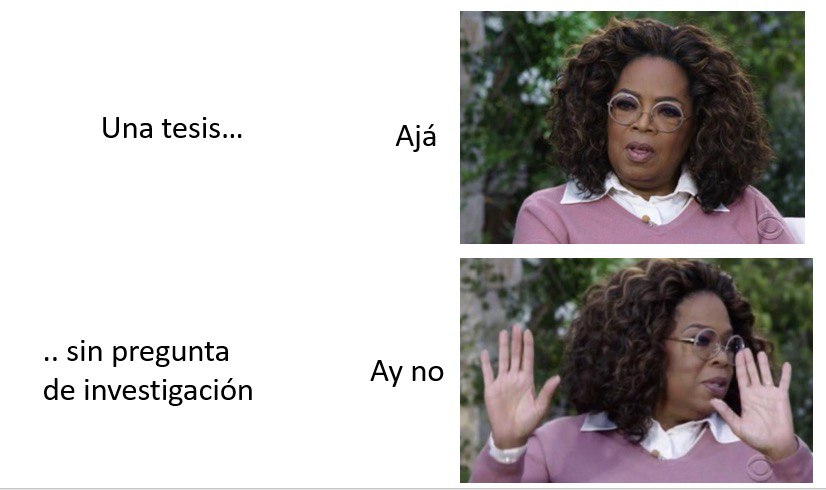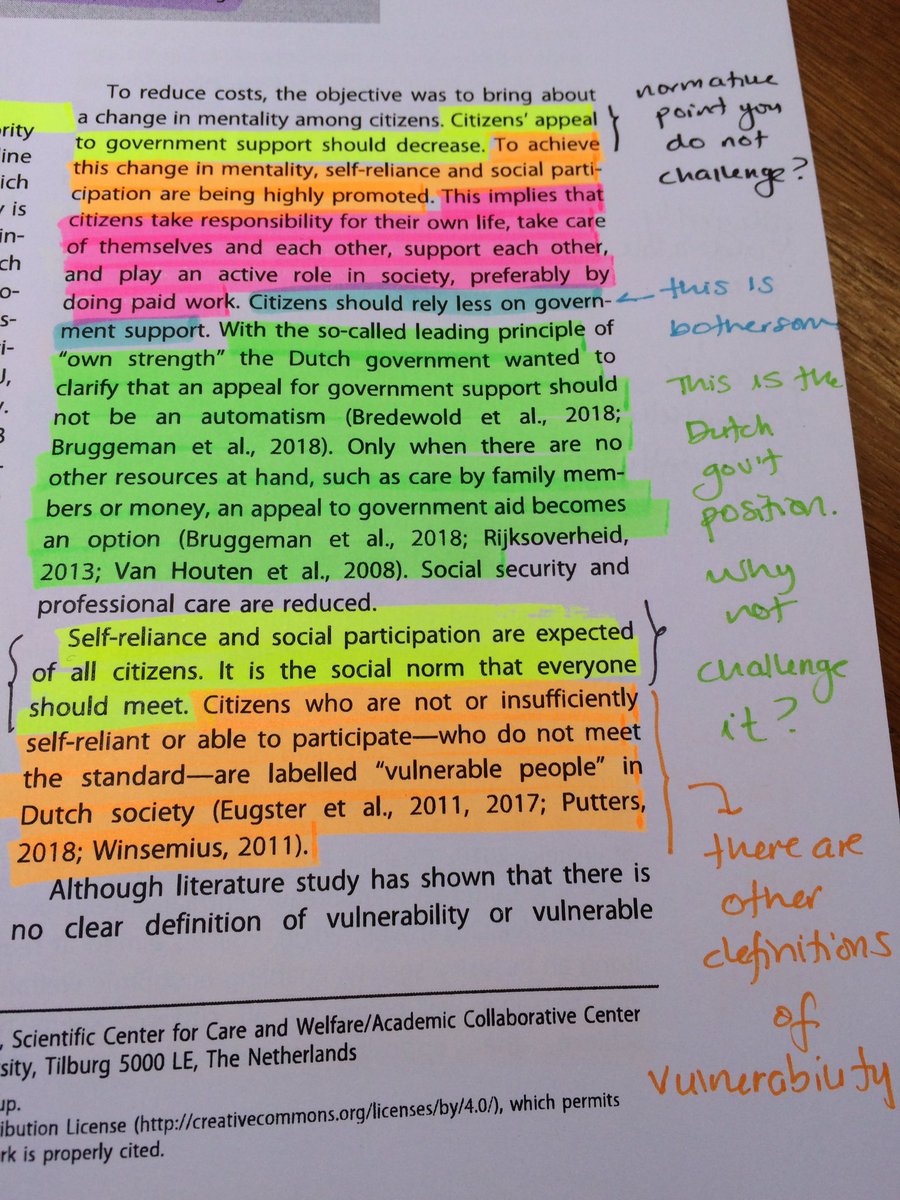
TODA INVESTIGACIÓN, absolutamente, TODA parte de una buena Pregunta.
En particular, una buena tesis requiere una pregunta de investigación bien diseñada.
En particular, una buena tesis requiere una pregunta de investigación bien diseñada.

PRIMERO, absolutamente ANTES que nada, antes de pensar en qué datos necesitan, deben de tener UNA PREGUNTA de investigación.
Primero va la pregunta, y luego el método.
Primero va la pregunta, y luego el método.
https://twitter.com/raulpacheco/status/1315468575373692929
Aquí un hilo mío sobre cómo formular preguntas de investigación, marcos teóricos, y expectativas teóricas.
https://twitter.com/raulpacheco/status/1301334603878273030
Este hilo les da sugerencias sobre cómo desarrollar buenas preguntas de investigación, y cómo formularlas de suerte que nos lleven a encontrar un "hueco en la literatura"
https://twitter.com/raulpacheco/status/1166525591304245248
"Pero, profesor Pacheco-Vega, leo mucho, y sigo leyendo, y no sé en qué momento dejar de leer y empezar a escribir".
Mi pequeñx padawan: siempre tenemos que leer y escribir. La revisión de literatura se hace hasta llegar a la SATURACIÓN
Mi pequeñx padawan: siempre tenemos que leer y escribir. La revisión de literatura se hace hasta llegar a la SATURACIÓN
https://twitter.com/raulpacheco/status/1367470711632130050
• • •
Missing some Tweet in this thread? You can try to
force a refresh






